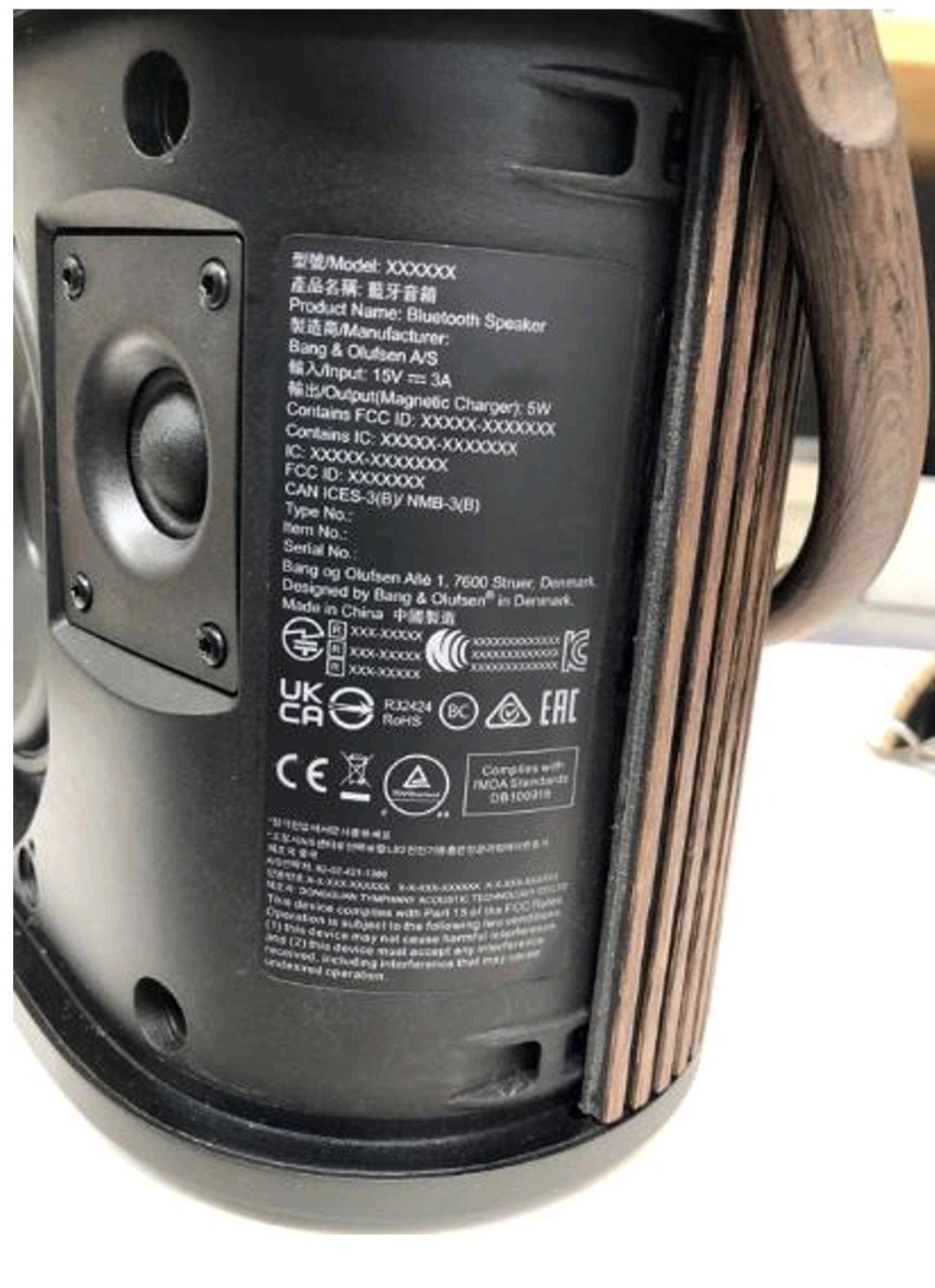Forum Replies Created
- AuthorPosts
-
I did some testing today.
Something I wasn’t aware of, being relatively new to the Apple world, is that AirPlay delays video streams to sync with the audio. So while there is a high latency of almost three seconds for the audio stream, the video stays paused until the audio starts playing. No good for interactive content, but it meant watching Netflix or YouTube on a Mac had no discernible lip sync issues while using a single Beosound A5, and matches Alex’s experience.
Next, I tried the same thing with two A5s paired in stereo – no lip sync issues! It looks like AirPlay accounts for the extra latency there, and again, only starts the video when the audio starts playing.
Of course, when I unpaired them I had all sorts of issues getting the second speaker to play audio again, eventually having to factory reset it when everything else had failed (losing presets and needing to configure WiFi and Chromecast again), but that’s down to B&O’s frankly horrible software. Such a shame they don’t seem to be able to get that bit right.
Hi Alex,
Yes, the latency issue is only there when they are paired in stereo. I presume it’s necessary for the left/right syncing. If I connect a single A5 via Bluetooth, I don’t notice any latency. I’m curious as to your projector setup – do you stream video from your Mac to your projector with Airplay, then connect the A5 to your projector with Bluetooth/USB? If I use Airplay for audio only, I get a very noticeable delay to any device, which I understand is part of that protocol – Airplay with video seems to have been designed with lower latency in mind, which makes sense, but I wish there were a low-latency audio version.
Regarding the soundstage – well, it’s a proper stereo soundstage, so if a particular track has an instrument playing on the left, you’ll hear it on the left as intended. It’s definitely a better experience than a single A5 if you want to sit down without distractions and listen to some music. It would be better for movies too, if you could get around the latency problem (some video players such as VLC let you adjust the delay between audio and video so that you can sync them up; Netflix of course won’t let you do this). I haven’t found any directivity plots and I haven’t done any blind tests with these vs any other speakers, so I couldn’t really tell you how accurate, deep, or wide the soundstage is. They sound good to my ears, but only when I move away from the ‘Optimal’ EQ as that’s big on bass and treble, and scooped out in the middle – definitely not my preference.
Would I recommend a second one? I think that depends on your use case. For me in hindsight, probably not; they stay pretty much in the same place in my office, and some very decent ‘fixed’ equipment can be bought for less. Perhaps they’d be more justified if they were the only sound system I had as I could just stick them wherever I wanted music, but the reality is that I have a very nice ‘main’ stereo system in my living room that’s calibrated at the listening position, and Nest Audio speakers in the bedroom and kitchen, which are unreasonably good. Now that I’ve said this, I might start swapping some stuff around…
Hey Alex,
I have a couple of these that I use mostly with my phone. To answer your question: it does enhance the experience, and there are drawbacks. I would say that if you like the sound of a single one, you’ll like the sound of a pair and can enjoy true stereo with a bit of added SPL headroom/longer playback time at the same sound level. A single A5 has impressively expansive sound with mid/side processing, but it’s not going to give you the same experience as a proper stereo setup.
The drawbacks:
There is some added latency (I recorded approx. 100ms), which means lip-syncing issues for video playback unless the player allows you to adjust for this. For me, the lip-sync issue is a bit too noticeable.
The stereo pairing isn’t great and sometimes I will have sync issues that present themselves in different ways: one channel playing, latency between channels, high-frequency choppiness/stuttering that results in a warbling sort of sound. More often than not I will have no issues at all and they are rock solid, but some days are worse than others. Mine are probably only a metre apart. I have been advised that the stereo pairing operates on the 5GHz wifi band, so connecting them to a 2.4GHz network can potentially help as there’s less interference. I haven’t done any extensive comparisons, but this is how I have mine connected.
They can only be paired/unpaired while connected to wifi. This is part of a broader problem which you may have discovered – the app can only configure the A5 over wifi. I find this a bit of an oversight for a ‘portable’ speaker; you can only change the sound profile and stereo pairing at home, then have to hope the bluetooth works while you’re out with them. I took one round to my parents and tried connecting via bluetooth – it didn’t work. I had to factory reset the speaker and connect to their wifi (losing my custom presets in the process), and then finally I could connect and play through them. Quite a faff for a portable speaker that one expects to work at the push of a button. I have a pair of Beolit 15s that I had planned on replacing with these for camping trips – I think I’ll keep them for that purpose as the app simply connects through bluetooth, and although you can use that to pair them in stereo, it’s not required as the device buttons can be used instead.
The power supply concerns me a little – the output is rated at a combined 280W RMS and yet it appears that the USB-C module can only handle 45W.
It is 280 W non-clipped peak power, not RMS. You’re only ever going to see very short bursts where the amplifiers are going to output that much. The battery capacity is rated 66 Wh (9000 mAh, before safety buffers that are created in software) and the product should play about 4 hours at maximum volume, which also gives some indication of power consumption.
Great info, thanks. Four hours at maximum volume is pretty good! Especially considering I get less than an hour out of Beolit 15s at the same setting.
I don’t doubt what you say about non-clipped peak power, but I have to wonder if the Beolits are measured using the same standard – originally the 15 was marketed as 240W of peak power, and this was later changed to 2 x 35W which I had assumed was the RMS figure in contrast – is this actually non-clipped peak power too?
Hi, I also prefer the A5 to the Level for sound, I will follow up with a side-by-side test video soon. The room compensation can be run at any time via the app using the A5 internal mic, you can’t save this but you can just run it again if you move the speaker. Kind regards, Steve.
A comparison with a Beolit 15 or higher would be great if you can!
It looks like USB-C can deliver up to 240 watts, so there might not be a problem. That is if A5’s charger can manage enough watts. https://manhattanproducts.eu/pages/usb-c-pd-charging-everything-you-need-to-know#:~:text=USB%2DC%20PD%20is%20a,that%20could%20deliver%20more%20power.
I hope they support one of the heavier profiles like some laptops and phones use! The reason for my concern was a reddit post showing the power supply module as 15V and 3A:

Acoustical power (W RMS) have nothing to do with electrical power consumption (W)… that’s why you get the same acoustical power with less power consumption by going from class A amps to class D (ICE Power)
If the A5 can only draw 45W from USB-C and it consumes more than that on average at certain listening levels, the battery will drain regardless of how the output power is measured. I’m just interested in how much of an issue that might be – perhaps the listeners get tired way before the battery does.
I think we are over-thinking the specs and assuming B&O have not been doing their own Electrical Engineering? Im sure the A5 can play pretty loud all day connected to the designed power source. Im sure they specify a playback volume and battery life hours as a pseudo metric. Where and how the watts are applied makes a difference and Im too lazy to work out the sound pressure to convert to a watts output. Think of the BL90. 8200 Watts of digital amplification per speaker. It only does goes this high at full chat for a brief moment in time. If it were sustained, it would melt the power sockets and plugs, electrical power cord etc… Rather, the onboard power supply has an input power, and output power and a degree of integral electrical storage (either the power modules or capacitors etc..) to ride out the loud passages of high music output. I would relax, go and listen to it, decide if it suits your usage needs or not and buy/dont buy. But I would not for one minute think that B&O don’t know what they are doing power-management wise.
No assumptions regarding B&O’s electrical engineering. The reason I am interested in real-world experiences with this device is because of how the Beolit 17 behaves with what appears to be the same power supply specification.
The power supply concerns me a little – the output is rated at a combined 280W RMS and yet it appears that the USB-C module can only handle 45W. This was apparently an issue with the Beolit 17 (and I’m assuming the 20, too), whereby the battery would actually drain at high volume levels while the unit is connected to a charger – the result being that speaker goes into low-power mode and reduces volume considerably. The Beolit is “only” 70W RMS, so the gap between input and potential output is even greater with the A5.
I know it’s unlikely the unit would output a sustained 280W, but the 45W threshold is quite low in comparison. That said, the battery is larger on this than the Beolit so perhaps it’s enough of a buffer that the problem rarely presents itself. I’m interested to hear about real-world use.
I’m also keen to know what sort of SPL the BL3 are capable of, and if they are better suited to near-field or mid-field listening – I can’t find much online.
“Maximum Sound Pressure Level 94 dB (stereo, pair)”. “It can be used for either main speakers or for rear surround-sound.”
Great, thanks. Where did you get that info? My google skills seem to fail me.
Do you know if that’s peak or sustained?
Thanks both. There are quite a few studio monitors available in this sort of price range, as well as the KEF LSX. Do you think the Beolab 3 can compete in terms of detail?
I’m also keen to know what sort of SPL the BL3 are capable of, and if they are better suited to near-field or mid-field listening – I can’t find much online.
- AuthorPosts
